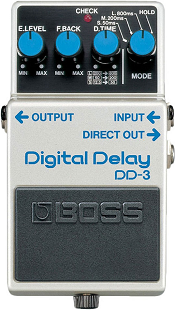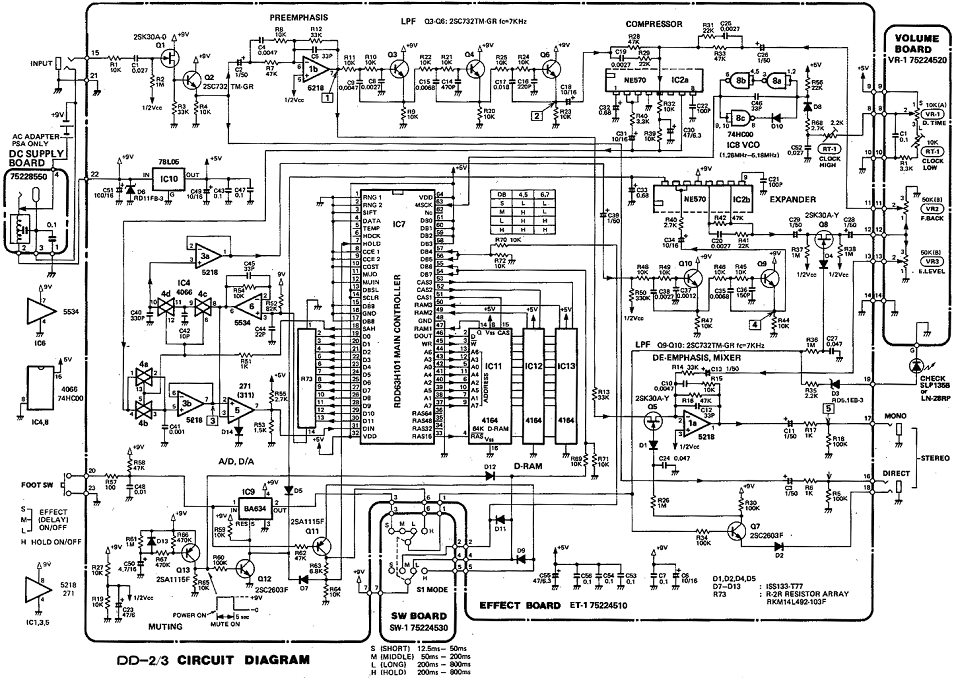Difference between revisions of "DD-3"
From Thermionic Studios
(Controls completed.) |
m (→Pedal Manual) |
||
| Line 26: | Line 26: | ||
==Pedal Manual== | ==Pedal Manual== | ||
| − | * [[Media:Boss_DD-3_OwnersManual.pdf|Boss DD-3 Owner's Manual]] | + | * [[Media:Boss_DD-3_OwnersManual.pdf|Boss DD-3 Digital Delay Owner's Manual]] |
==Phase Inversion: No== | ==Phase Inversion: No== | ||
Revision as of 01:27, 10 March 2018
Boss DD-3 Digital Delay pedal (Japanese Manufacture).
Subsequent Boss Digital Delay models include:
- DD-5
- DD-6
- DD-7
- DD-8
Controls
- Knob 1 - "E. Level": (Effect Level) Turning clockwise, this knob increases the amount of effect (wet) signal. Dry signal always comes through at 100%.
- Knob 2 - "F. Back": (Feedback) Fully counter-clockwise, this knob sets the delay for one repeats with additional repeats as knob is turned clockwise. Fully clockwise causes an infinite cascade of slowly degrading sound.
- Knob 3 - "D. Time": (Delay Time) Sets the delay time, based on the "Mode" selector. Fully counter-clockwise is the minimum time window, while fully clockwise is the maximum time.
- Knob 4 - "Mode": Most important control. This is a multi-switch to select between different delay time windows:
- 50 ms - varies from 1 millisecond to 50 milliseconds
- 200 ms - varies from 51 milliseconds to 200 milliseconds
- 800 ms - varies from 201 milliseconds to 800 milliseconds
- "Hold" - Based on the knob 3, "D.Time" setting, this setting captures the latest time segment in the delay and repeats a drone or set of notes for as long as the pedal is held down.
- Footswitch 1 - "On/Off": Toggles the effect On and Off
General Information
Pedal Manual
Phase Inversion: No
Candidly, this schematic is a bit more than we're able to work through and determine whether this pedal inverts phase or not. Right now, we're taking it as an article of faith that it doesn't invert phase based on our own past experiences, but memories are known for being inaccurate.
Without going through the schematic and understanding how phase is changed inside the pedal, the only current method is to put the pedal on an oscilloscope and see the outcome.
Schematic
From:
Artists
- Additional Sources

